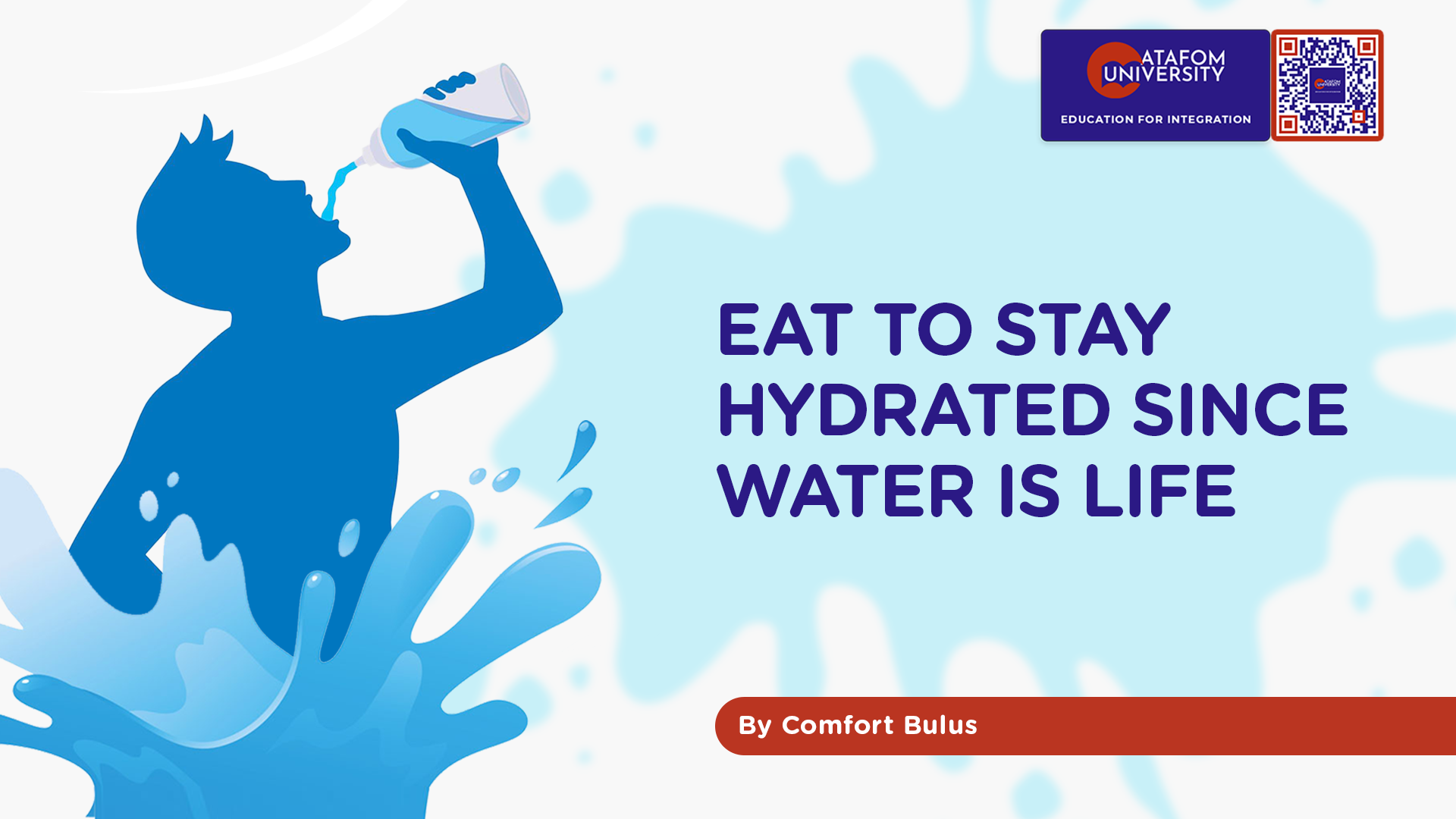Does your body need water? Yes! Experts say that oxygen is the second most crucial element for life, right after water. You couldn’t last more than a few days without it, as water makes up more than half of your body weight. On the other side, you can go for weeks without eating.
The body needs water because it is used in every cell and carries nutrients, oxygen, and waste products. It controls body temperature, lubricates joints, safeguards tissues and organs, regulates body temperature, promotes digestion and absorption, and eliminates waste. A healthy weight is also aided by water. The body loses 2 to 3 quarts (8 to 12 cups) daily through sweat, urine, and evaporation. Exercise, living in hot or dry climates, eating a high-fibre diet, and consuming alcoholic or caffeinated beverages all contribute to this loss. For a healthy body and to prevent heat exhaustion or heat stroke, drinking at least 8 to 10 cups of water daily is imperative.
Water has 0 calories, did you know that? Water is quick and straightforward and does not require any nasty cleanup. Water is constantly cooling and won’t leave stains on your clothes. It might be challenging to stay hydrated when the temperature is high. One of the best things you can do for your daily comfort and general health is to drink enough water. Our bodies require water to hydrate, transport nutrients to cells, control body temperature, guard against infection, lubricate joints, and keep our organs functioning properly. Hydration is also beneficial for mood, sleep, and cognitive function.
When the body does not have enough water to operate correctly, dehydration results. Even 1% of your body’s water loss might result in symptoms like headaches, muscle cramps, or a dry mouth. Salt and potassium, which are crucial for maintaining biological processes, are also lost due to dehydration. The human body is primarily water, with newborns making up 78%, one-year-olds 65%, adult women 55%, and adult men 60%. The brain and spinal column benefit from the shock-absorbing properties of water. The Harvard T.H. Chan School of Public Health advises men and women to drink 11 and 16 cups of water daily. For every 20 minutes of exercise, you should drink more water. It’s crucial to understand that not. Only some of your water intake should come from plain cups because eating items with a lot of water is against your daily requirements. Sugary beverages should be avoided because they can damage health and produce lovely food and drinks.
These 20 summer-friendly meals are great for staying hydrated because they are at least 80% water.
In the summer, soup is a famous and satisfying supper because it is almost entirely composed of water. There are several ways to eat it, including soups, gazpachos, cantaloupe-and-yogurt, and French vichyssoise. A tiny bit of calcium, potassium, phosphorus, and magnesium are also abundant in cucumbers. Due to its high water content, watermelon is a fantastic source of hydration. Another choice is plain yoghurt with a few berries added for additional hydration and fibre.
Due to its high water content and versatility, zucchini is an excellent choice for salads, sandwiches, pasta and baking. Potassium, vitamins A and C, manganese, and folate are abundant in peaches. Iceberg lettuce is a 96 per cent water vegetable that is nutrient-rich and a fantastic salad option. Grapefruit has a water content of more than 90% and is tasty, low in calories, and abundant in nutrients. In addition to providing approximately five grammes of fibre, 70 per cent of your recommended daily intake of vitamin C, and various minerals, potatoes are a good source of potassium.
Since they contain more than 80% water, tomatoes are a diverse and nutrient-dense food source. Beta-carotene and vitamin C-rich cantaloupe is a pleasant and filling alternative. With an 86 per cent water content, strawberries are a tasty and healthy fruit. Raspberries have about 87% water content and are nutrient powerhouses. Blueberries are abundant in dietary fibre, vitamin C, iron, magnesium, and protein. With loads of magnesium, potassium, manganese, vitamins B and C, and the anti-inflammatory enzyme bromelain, pineapple is a fantastic hydrator. Celery is a crisp vegetable that contains luteolin, apigenin, and other compounds that may slow the growth of cancer cells. With a water level of 91%, broccoli is a multipurpose vegetable that offers essential minerals like iron, calcium, magnesium, and vitamins B6 and C. Also, carrots are rich in fibre and vitamin A, which are excellent for eye health.
You may already be dehydrated if you wait until thirsty before drinking water. Typically, thirst is a sign that the body’s fluid levels are much below what is necessary for optimal performance. Before you feel thirsty or have a dry mouth, drink some water. Stay hydrated to maintain your health! ATAFOM International University cares because you matter!


